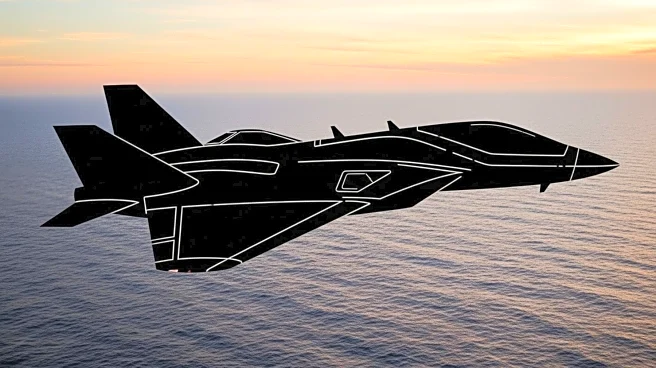What's Happening?
The US Navy has awarded preliminary contracts to Boeing, General Atomics, Northrop Grumman, and Anduril Industries to develop uncrewed fighter jets capable of operating from aircraft carriers. This initiative follows the US Air Force's efforts to develop semi-autonomous tactical jets, known as Collaborative Combat Aircraft (CCAs). The contracts aim to create carrier-ready autonomous platforms tailored to the Navy's specific needs. Anduril Industries confirmed its participation, focusing on rapid development and scalability. General Atomics, Boeing, and Northrop Grumman are also involved, leveraging their experience in autonomous and carrier-based aircraft technologies.
Why It's Important?
The development of carrier-based autonomous fighter jets represents a significant advancement in military aviation technology. These platforms could enhance the operational capabilities of the US Navy, allowing for more flexible and efficient deployment of air power. The initiative aligns with broader defense strategies to integrate advanced autonomy into military operations, potentially reducing risks to human pilots and increasing mission effectiveness. The involvement of major defense contractors underscores the strategic importance of this program, which could lead to innovations in unmanned aerial systems and influence future military procurement decisions.
What's Next?
The US Navy is expected to follow a development timeline similar to the Air Force's, with multiple early-stage contracts leading to a narrowed selection of designs. The Navy plans to begin carrier integration with the MQ-25 autonomous aerial refueller next year, which could inform the development of the new fighter jets. As the program progresses, the Navy will likely evaluate the prototypes' performance and scalability, aiming for production and deployment in the coming years. This could lead to further advancements in autonomous military aviation and influence global defense strategies.












